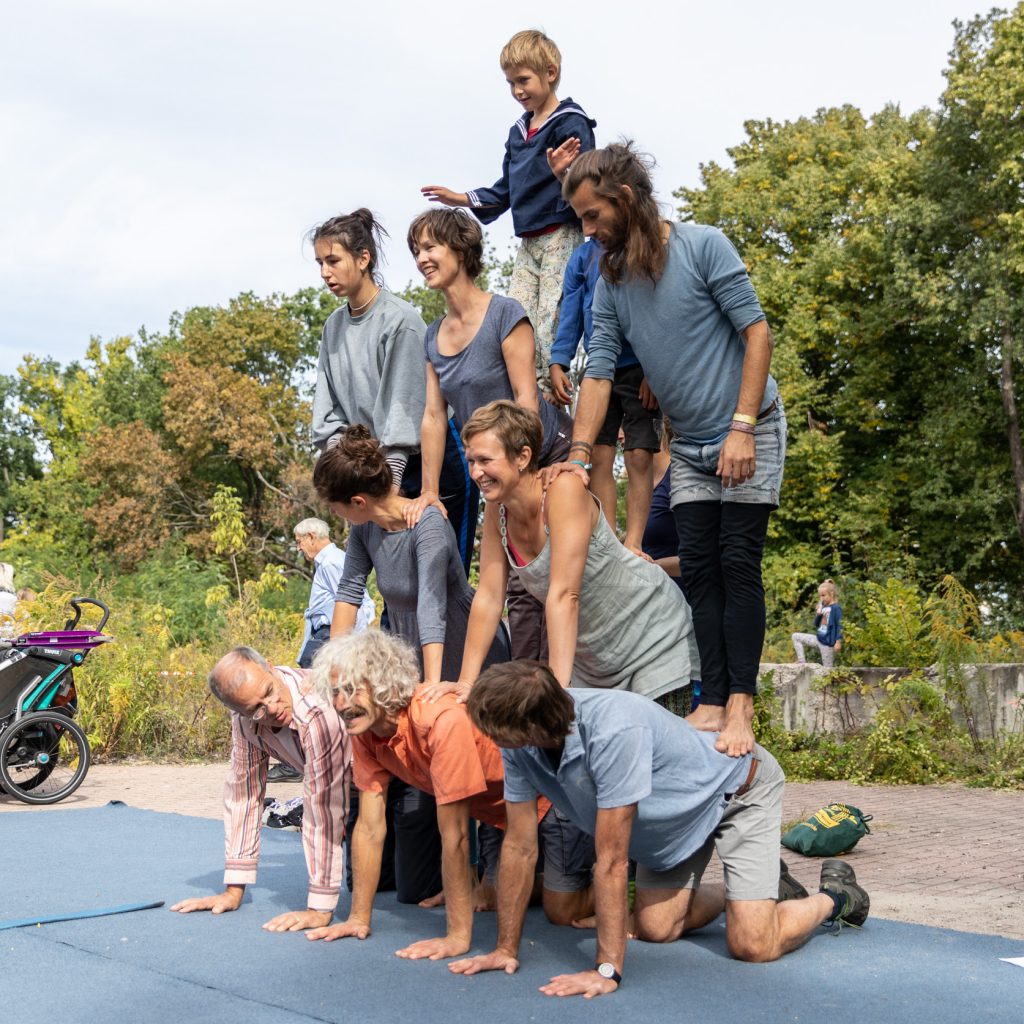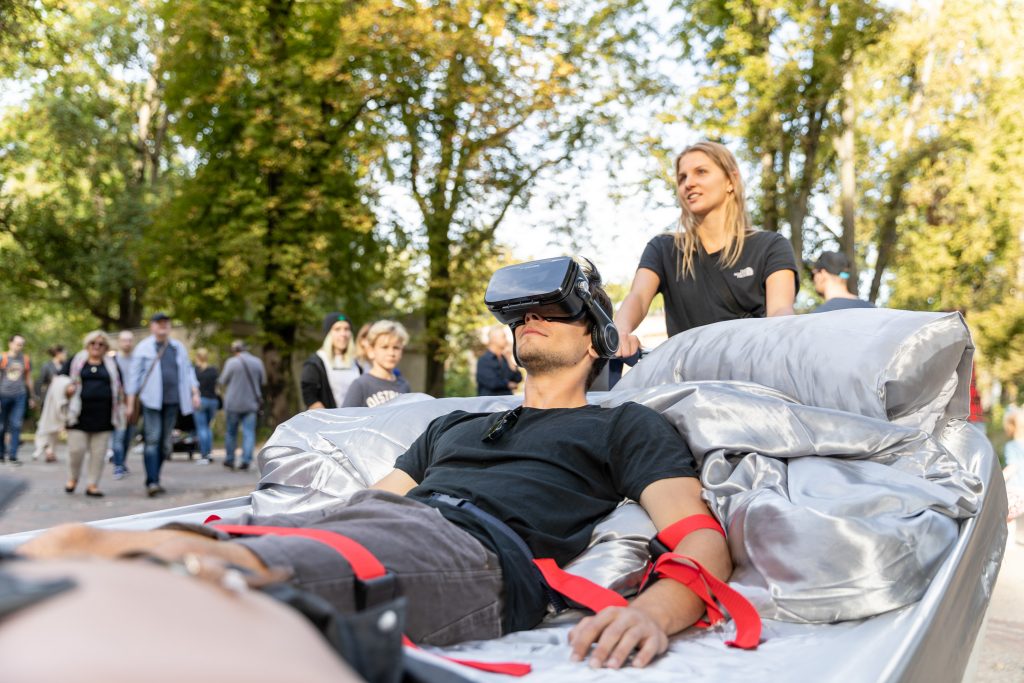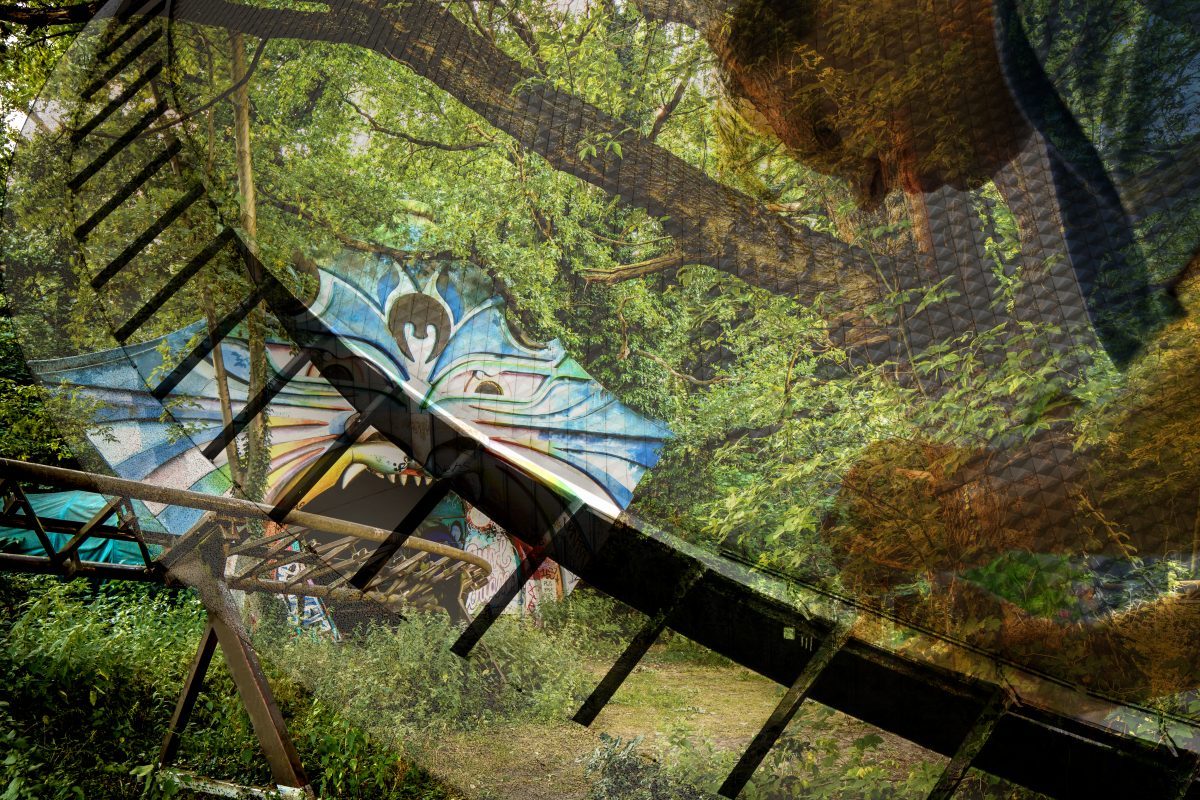Activities
The ZKR in 2019: A year in review
Whether bringing the GDR punk scene to life in “Oral Histories”, creating movement maps that enable new forms of orientation or making static phenomena experienceable on a physical level, 2019 marked a year of artistic research and interactive exploration for the ZKR.
Workshops and artistic research
With the plans for reopening the Spreepark as a park for art, culture and nature in full swing, the ZKR – a platform for Grün Berlin GmbH’s art projects – will be experimenting with interactive formats as part of a multi-year laboratory phase on the site.
This year, the ZKR invited artists and creative actors to become acquainted with the past, present and future of the Spreepark in a unique fashion. Using experimental workshop formats incorporating diverse disciplines, artists and participants were able to gain extraordinary insights and make unexpected discoveries. Around 40 workshops gave children, youths and adults the opportunity to become part of these creative, experimental research approaches and learn more about the location and the themes addressed. As well as providing a source of great fun, the diverse programme helped bring the history of the Spreepark to light and give valuable ideas for future educational activities on the site.

Constructing islands of creativity
40,000 visitors took the opportunity to visit the former theme park during the Spreepark Open Day on 14 and 15 September and learn more about the area between the Eierhäuschen restaurant, the Spreeblitz rollercoaster and the big wheel. On 15 September, the ZKR focused on the potential of creative approaches regarding the park and its intended use. The Spreepark Soapbox, developed by the raumlaborberlin architecture collective, allowed artists and visitors to exchange views on subjects such as art and inclusion, urban narratives, the value of artistic methods within the framework of urban planning practices as well as the different concepts of artists’ residencies. Artists from this year’s programme presented their findings and gave visitors the chance to experience their creative research in person:
Moviemiento presented the stop-motion films that had been created in their workshops and gave practical insights into production techniques. Ursula Maria Berzborn, Tom Mustroph and Hanna Zimmermann filled their swan-shaped mobile of remembrance with a multimedia archive of personal eyewitness recollections of the former theme park. Alexis Goertz (Edible Alchemy) opened her Bacteria Bar and threw light on the ingredients of her unusual plant-based drinks. Gernot Wieland exhibited potato prints that were created as part of his writing workshop. Ella Ziegler and the performers from the Circus Schatzinsel investigated the static phenomena of rollercoasters on their own bodies, while Sabine Zahn invited visitors to explore the park using unusual movements and experience it from new perspectives. Hans Winkler, on the other hand, gave participants a listen into his audio archive on the oral history of the park.
workshops offered by Kulturspreepark e.V. gave hearing and non-hearing pupils chance to explore unusual places in the park and the stories hidden within them. Visitors could find the resulting poems in a specific location in the park.
In co-authorship with people who have a different sense of their surroundings due to a particular mental or physical characteristic, Lukas Matthaei and Sebastian Quack devised alternative attractions for enjoyment beyond the bounds of the normative. Visitors could relinquish control by being pushed through the park while lying on a bed wearing a VR headset or navigate through the park using individually designed wheelchairs.
Amid this mass of visitors, the various artists were able to forge individual islands of creativity that allowed participants to focus, take in unanticipated stimuli and develop new perspectives of their own.

Building on the findings
The coming year will see some of the featured artists continuing their research, devising different formats building on themes and issues explored in 2019.
In total of around 50 workshops, the Spreepark will be examined as a location of historical, architectural, ecological, social and narrative importance. Participants will be invited to get to know the park on numerous different levels: through drawing, sculpture and film; through natural, spatial and physical experiences; or through taste, (hi)stories and memories.
The objective of these different workshops is to combine theory and practice, knowledge and experience and to creatively explore the potential of interdisciplinary approaches. The new year is set to hold an ample supply of questions for the ZKR and its partner artists, and we hope that you will be able to be part of these exciting investigations!

